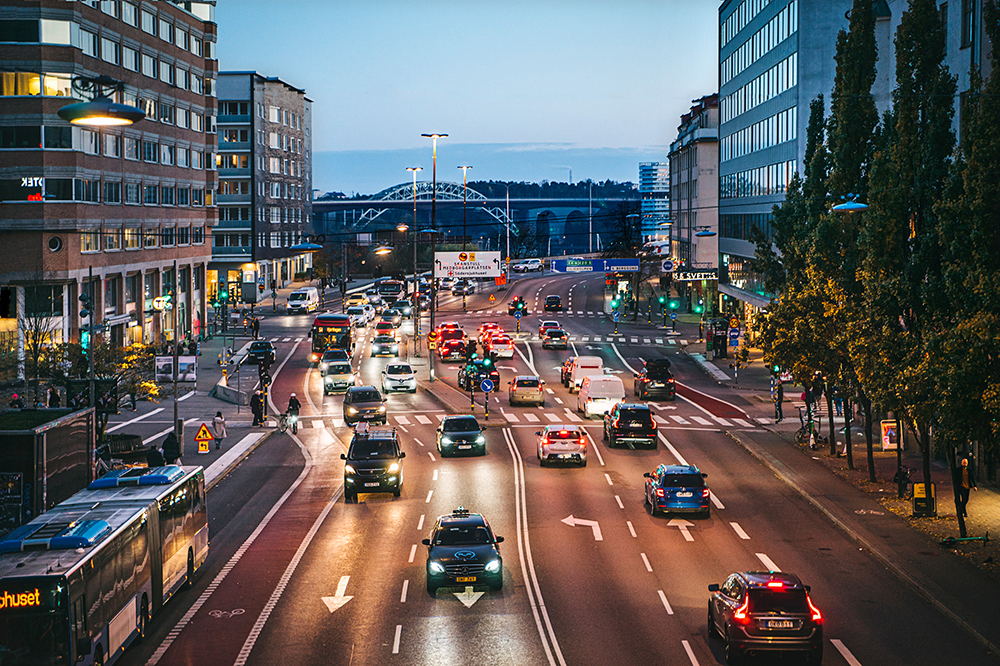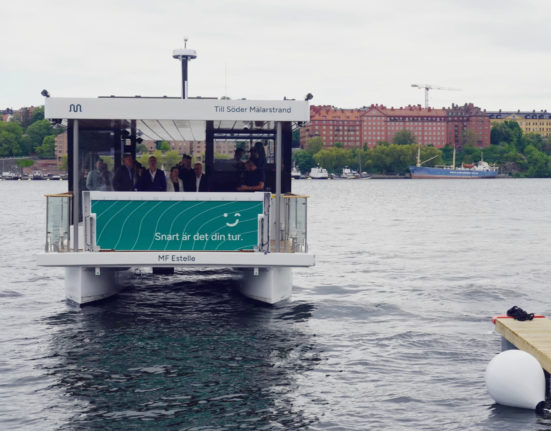Traditional diesel- and gas-powered cars will be banned in parts of Stockholm’s city centre from 2025 to reduce emissions and encourage electric vehicle (EV) adoption. A” low-emissions zone” spanning around twenty blocks will allow only EVs, fuel-cell vehicles, and some hybrid trucks. Although it’s now not uncommon for European capitals to limit usage of gasoline and diesel cars, Stockholms full-out ban is unprecedented, paving the way for a greener city. The new rules will come into effect on 31st December 2024, therefore giving Swedes time to prepare for the change.
A quieter, cleaner, and more sustainable Stockholm
Certain streets in the city centre most used for making deliveries — specifically those within Kungsgatan, Birger Jarlsgatan, Hamngatan and Sveavägen — will largely comprise the new low-emissions zone. By transitioning to EVs, deliveries in Stockholm’s city centre are therefore set to become less-polluting and quieter. Shops, pedestrian walkways, and several homes are also included within the 180,000-square-metre zone. “We need to eliminate the harmful exhaust gases from (gasoline) and diesel cars. Nowadays, the air in Stockholm causes babies to have lung conditions and the elderly to die prematurely. That’s why we are introducing the most ambitious low-emission zone to date,” Lars Strömgren, Green city council member and Stockholm’s Vice Mayor for Transport and Urban Environment, told the Associated Press. “We have chosen an area where large numbers of cyclists and pedestrians are exposed to unhealthy air on a daily basis. It is also a part of the city that is home to forward-thinking companies that are keen to lead the transition to a more sustainable future.”
The low-emissions zone is a Zone type 3: the most stringent in terms of vehicle usage. And although the zone will only permit EVs, exceptions will naturally be made for ambulances, police cars, and transport for people with documented disabilities. There’s also eventual plans to extend the zone to incorporate more of the city at a later date.
Cheaper lifetime costs: the rise of EVs and hybrids in Stockholm
EVs are growing in popularity across Sweden, with EV registrations increasing by 58% in total in 2022. In addition to eliminating carbon emissions and pollution, EVs also have the benefit of lowering fuel costs for drivers. In fact, owning an EV in 19 out of 22 European countries typically ends up being cheaper than owning a traditional petrol or diesel car, research from the World Economic Forum reveals. Lifetime ownership costs for EVs are around 27% cheaper in total, with cost savings estimated to be around €4,409.55 over a seven-year period.
Hybrid cars are another popular, eco-friendly option now increasingly commonplace on Swedish roads; these models use an electric motor alongside a conventional petrol or diesel engine. As they run on less fuel than regular cars, hybrids release fewer emissions and have a smaller carbon footprint in total. At the same time, hybrid cars also eliminate the problem of “range anxiety”: the common fear experienced by EV owners that their cars will run out of battery too soon. Once hybrids run out of battery power, they simply switch to using gasoline, which means drivers can reach their destinations without needing to worry about finding a charging station nearby.
Notably Taxi Stockholm — one of the biggest taxi firms in the city — has also been working hard to transition its fleet to electric, with EVs now accounting for 30% of the fleet. In total, the fleet has nearly seven times more EVs than it did in 2022, Taxi Stockholm’s acting chief executive Pernilla Samuelsson reveals. “In other words, the transition is going fast and it is already being driven forward by the industry,” Samuelson says. On top of that, Volvo, one of Sweden’s most popular carmakers, also recently announced plans to stop producing all-diesel models in early 2024. Volvo say they’re now focused on building efficient fully-electric vehicles that live up to consumer’s expectations for the Volvo name and also help fight climate change.
“We want to create a better living environment for the people who live and work here,” says Strömgren. By completely banning conventional fossil fuel cars in the designated low-emission zone, it’s hoped the new rule will spark an unstoppable wave of EV adoption across Stockholm, paving the way for a healthier and cleaner city free from pollution. Ultimately, Stockholm will stand as a positive example of sustainability for other cities across the country to follow.












